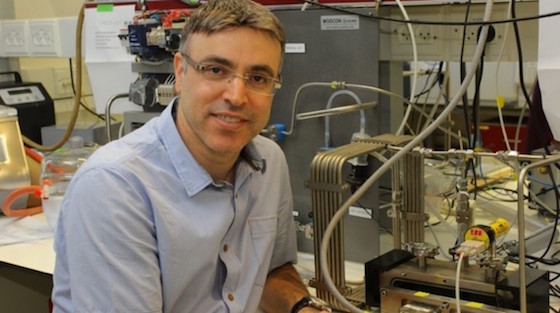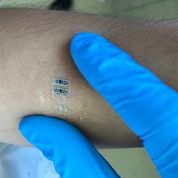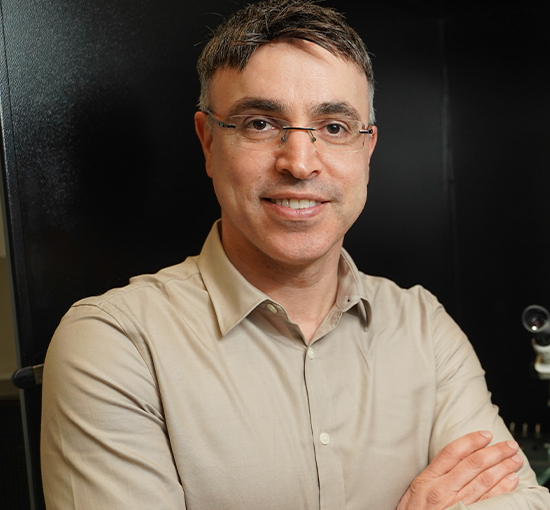Can a Simple Arm Patch Help Eradicate TB in the Developing World?

Pictured above: Graphic rendition on skin adhesive sensors for tuberculosis from Technion Israel Detection
There is a vaccination that prevents it, and drugs that can kill it. Yet tuberculosis, colloquially known as consumption, is still prevalent and deadly. In 2019, tuberculosis infected an estimated 10 million people globally, killing 1.4 million — 95% of cases occurring in the developing world.
One reason TB is still with us is delayed diagnosis. Early symptoms are non-specific, and existing TB testing is slow and often too complex and expensive for facilities with limited resources. Therefore, some 3 million cases are missed each year, which prompted the World Health Organization to declare TB a global health emergency in 1993.
Now a team of scientists under the supervision of Technion Professor Hossam Haick has created a device called A-patch to diagnose the disease quickly, non-invasively, and with great accuracy. The patch contains a pouch of absorbing material that collects compounds released through the skin. Using artificial intelligence to analyze the tell-tale compounds, as well as sensors that will eventually be integrated into the patch, scientists can detect the presence of TB.
Professor Hossam Haick
Having demonstrated proof-of-concept, the patch is now in clinical studies.
“Our initial studies, done on a large number of subjects in India and in South Africa showed high effectiveness in diagnosing tuberculosis, with over 90% sensitivity and over 70% specificity,” said the Technion’s Dr. Rotem Vishinkin. “We showed that tuberculosis can be diagnosed through the compounds released by the skin. Our current challenge is minimizing the size of the sensor array and fitting it into the sticker patch.”
Skin adhesive sensors for tuberculosis detection
The test is cheap, fast, and simple to use, requiring no specifically trained personnel. The team hopes the same method could be used to detect other diseases and provide access to effective diagnosis in remote areas of the world.
Mycobacterium tuberculosis, the bacteria that causes TB, was discovered in 1882. At that time, the disease, which is spread through the air and most often found in the lungs, killed one out of every seven people in the U.S. and Europe.
The Technion clinical studies were supported by the Bill & Melinda Gates Foundation with the generous assistance of Professor Gilla Kaplan, Director of the Global Health Program, Tuberculosis. Horizon 2020, the biggest EU research and innovation program ever, is providing continued support for further development of the project.


